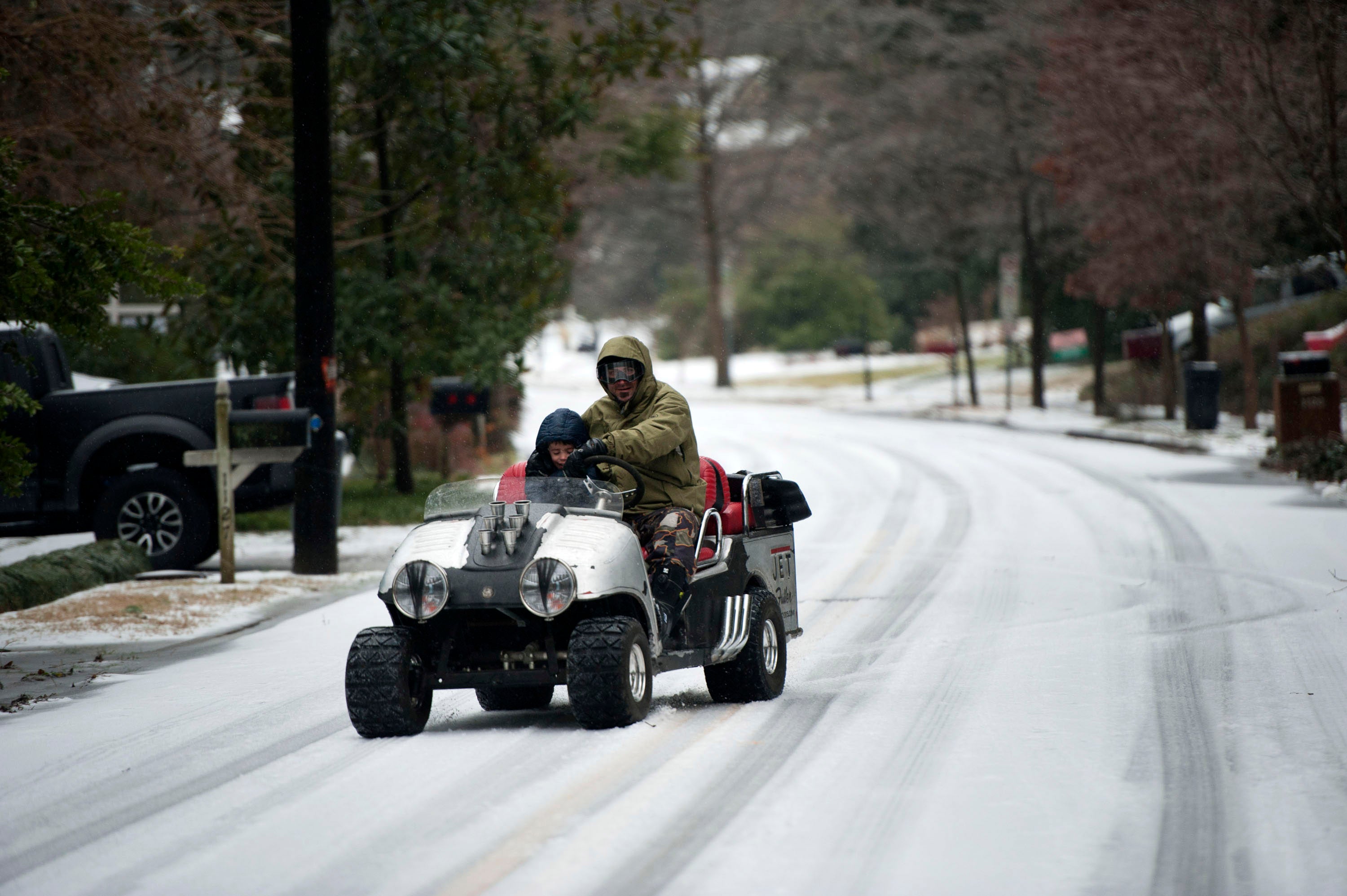People in Peachtree City, Georgia are pretty adamant that golf carts are a viable and responsible mode of transportation. Peachtree City is just a bit south of Georgia’s capitol, Atlanta, and Peachtree’s residents travel freely along 100 miles of golf cart paths. It has a population of 38,000 living among 13,000 households, but boasts 10,000 registered golf carts, according to Slate. If you live in Peachtree and don’t ride a golf cart, it’s possible you’re the odd one out.
The foot paths used by residents were once reserved for pedestrians, bicycles and scooters. But when people started driving golf carts, the practice stuck. The city eventually paved the footpaths and made the multi-use paths 3.05 m wide, which encouraged more people to drive golf carts when going on short trips.

The trend is now spreading, as Slate reports. In states all over the country, golf carts are already popular alternative vehicles: Florida, California, Arizona and North Carolina.
Not only are golf carts popular among older drivers, but they’re also popular among younger ones, too. Peachtree City Mayor, Kim Learnard, says that 16 year-olds can legally operate golf carts, and teens use them in the city to visit friends nearby. I would really love to see what the golf cart tuner culture is like.

Slate cites a 2015 Harvard study that says golf carts could be the future of transportation, a cleaner alternative to mass public transport and EVs. Slate goes on, saying golf carts are propulsion-method agnostic:
Carts can be either gas-powered or electric, typically costing around $US10,000 ($13,882), give or take a few thousand. They generally weigh 230 to 500 kg and travel under 32 km/h, making them significantly lighter and slower than a car. A roof provides protection from the sun; an optional plastic enclosure can keep users dry when it rains.
These are all good points, and they highlight how golf carts could be a viable alternative to cars in the right places, but I can’t help think that the list of golf cart pros is overlooking what the rest of the world already knows: that smaller vehicles are much better — and eco-friendlier — than modern cars.
Kei cars come to mind, but those can be pricy. I’m talking about two and three-wheel vehicles. Motorcycles, which weigh less than golf carts, can be either ICE-powered or EVs and can be as easy to operate as bicycles. Maybe I’m biased, or maybe not. Some of the largest and busiest city streets have been familiar with the actual value that motorcycles, scooters and rickshaws represent.
Peachtree City is a good step, but when are we going to see American cities copy Southeast Asia? Where is the Georgia city where motorcycle crash rates are much lower because everyone else is riding on a motorcycle? I’d argue the only thing bikes can’t do that a golf cart can do is fit four people because they’re only safer around other golf carts. You’re not going to feel safe surrounded by big trucks and SUVs. I like the project Peachtree City has going, but I’d love it if there were motos. Come on Georgia, let’s see some love for two-wheelers, too.
